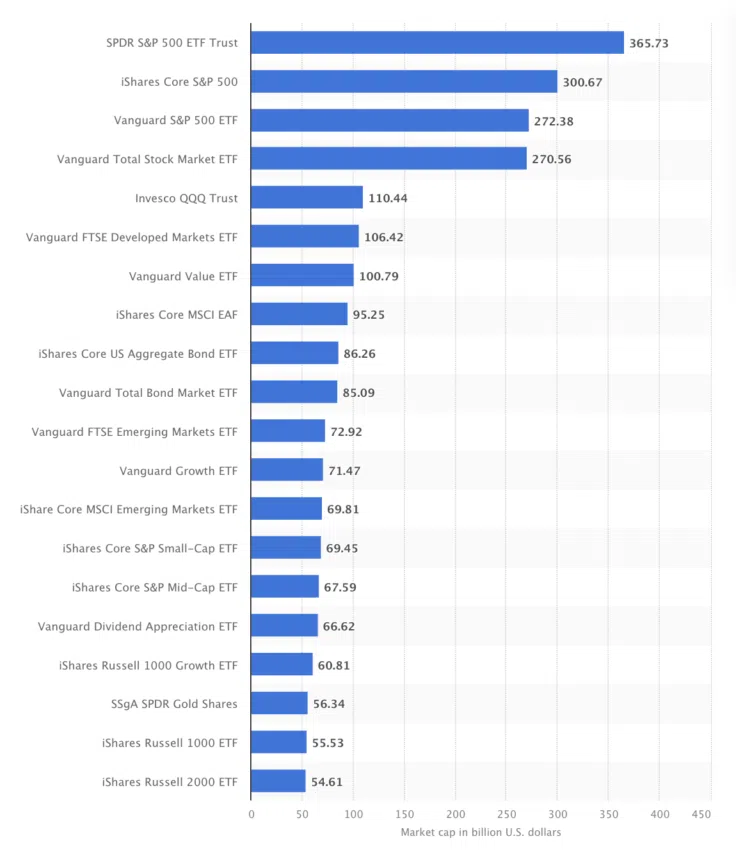
The United States Securities and Exchange Commission’s (SEC) recent postponement of Bitcoin ETF (Exchange Traded Fund) decisions to 2024 has stirred the pot in the cryptocurrency market.
Industry experts see the delay as a strategic move by the SEC to bide time. This comes as a continuation of prior delays and evident congressional pressure to expedite regulatory clarity.
Bitcoin ETFs to Open the Floodgates for Institutional Capital
Seasoned crypto market participants are unlikely to be shaken by the SEC’s move to delay Bitcoin ETF decisions to 2024. They are no strangers to the SEC’s tactics, and the market has historically shrugged off such regulatory hesitations. However, the significance of an eventual Bitcoin ETF approval cannot be overstated.
A US-based Bitcoin ETF could open floodgates for institutional capital, which has been sidelined, awaiting a regulated entry point into the crypto market. Lucas Kiely, chief information officer at Yield App, told BeInCrypto that a seal of approval for Bitcoin ETFs would establish a feedback loop, escalating the legitimacy and the inflow of investments simultaneously.
“An approved Bitcoin ETF has the potential to fuel institutional investment and usher in a transformative era for crypto. Such an ETF would provide a regulated and familiar investment vehicle for institutional investors, mitigating their concerns about liquidity, custody, and regulatory uncertainty,” Kiely said.
The push by financial giants like BlackRock and Fidelity to approve a spot Bitcoin ETF is a telltale sign of growing institutional interest. Their support speaks volumes, signaling readiness to integrate Bitcoin within the traditional financial fabric.
Such endorsements could sway the broader financial community, heralding a new era of crypto investments upon regulatory greenlighting.
“Increasing institutional interest holds significant implications for the perception and validation of cryptocurrencies within traditional financial circles. The involvement of established financial institutions lends credibility to the crypto market, which has long been perceived as volatile and speculative,” Kiely added.
Read more: 4 Best Crypto Brokers for Buying and Selling Bitcoin in 2023
The US spot Bitcoin ETF market’s growth potential is staggering. Even Bloomberg Intelligence suggested it could burgeon into a $100 billion crypto industry. This growth could catalyze a substantial appreciation of Bitcoin’s value. In turn, it would likely spill over into the altcoin market, precipitating an ecosystem-wide bull run.
The historical pattern following Bitcoin’s price increases has often seen altcoins surge in its wake, suggesting a broad market uplift is likely.
“When [BlackRock] filed [for a spot Bitcoin ETF], it was a whole different ballgame in my opinion. The fact is they generally like to bring a gun to a knife fight. This is a firm who doesn’t like to lose, who knows what they’re doing, and they must see something [in Bitcoin],” Eric Balchunas, an analyst at Bloomberg, emphasized.
The Difference Between Spot and Futures-Based ETFs
Spot Bitcoin ETFs have the edge over futures-based ETFs, offering direct exposure to the real-time price of Bitcoin. Hence resonating with the market’s actual supply and demand. John Glover, chief information officer at Ledn, told BeInCrypto that spot Bitcoin ETFs improve the accuracy of price tracking, simplify investment processes and reduce fees for retail and institutional investors.
The lower fee structure is particularly attractive as it could shift substantial capital into the crypto market, previously deterred by the high costs associated with traditional crypto trading platforms.
“Spot ETFs follow the actual market price of Bitcoin and avoid the higher trading fees that come with regular exchanges and the need to manage your own assets. They offer a more accurate and simple road for retail investors and institutions to get direct exposure to Bitcoin. Futures ETFs, on the other hand, can fall out of sync with the market and often come with annual fees,” Glover said.
Read more: What are Perpetual Futures Contracts in Cryptocurrency?
Moreover, the speculated liquidity shift from futures to spot Bitcoin ETFs might lead to a reconfiguration of market dynamics. This could potentially enhance the stability of Bitcoin and dampen its notorious volatility. As institutional investors typically engage in less speculative, long-term investment strategies, their participation could add a stabilizing influence on the market.
This aligns with the vision Leo Melamed, chairman emeritus of CME Group, had in 2017 before the firm launched the futures contract of Bitcoin.
“We will regulate, make Bitcoin not wild, nor wilder. We’ll tame it into a regular type instrument of trade with rules,” Melamed said.
The broader acceptance of cryptocurrencies could catalyze innovation and growth within the industry. As cryptocurrencies gain legitimacy, an influx of capital will foster new projects, platforms, and applications. Subsequently driving the industry to new heights.
“As cryptocurrencies become more legitimized, it means more players will get involved. Many who are watching from the sidelines may decide to take the leap. This doesn’t just mean more capital, but also more innovation, more projects surrounding crypto, and more products as a result,” Glover added.
How Increased Institutional Demand Will Impact BTC Price
The approval of a Bitcoin ETF could have a profound impact on Bitcoin’s price. This is primarily due to the influx of institutional capital it would bring.
“We expect US regulated ETFs to be the watershed moment for crypto and we expect a SEC approval by late 2023/Q1, 2024. Post halving, we expect the Bitcoin spot demand via ETFs to outstrip miner selling by 6-7 times at peak. We expect Bitcoin ETFs to be equivalent to 9-10% of spot Bitcoin in circulation by 2028,” Gautam Chhugani, Global Digital Senior Analyst at Bernstein, said.
Institutional investors, with their vast financial resources, can significantly move markets. Their entry into Bitcoin via a regulated ETF could drive up demand and, consequently, push the price of Bitcoin into a bull run.
Indeed, the approval would signal regulatory acceptance that could further enhance investor confidence, driving up demand and price.
“The approval of the first Bitcoin Futures ETF in October of 2021 did come just before the previous market all-time highs the next month. However, it would be too far to say that the ETF was the only factor driving price action. Still, it is likely that the announcement of the approval of one or more spot ETFs would help boost sentiment and, therefore, buying in the days, weeks, or months that follow,” Glover affirmed.
Read more: Why the Crypto Market Has Yet to Realize the Bullish Potential of Spot Bitcoin ETFs
Historically, approving ETFs in other asset classes has often increased asset prices. For instance, the gold market witnessed a significant appreciation in price following the approval of the first gold ETF. Similarly, a Bitcoin ETF could unlock a wave of liquidity, propelling Bitcoin to new price highs.
The new heights could be sustained by the enhanced legitimacy and the more robust, diversified investor base that a Bitcoin ETF would foster.
“Applying these historical precedents to a potential Bitcoin ETF approval suggests that it could shape prices in the crypto market significantly. If approved, an ETF would offer institutional investors an accessible and regulated avenue to invest in Bitcoin, resulting in significant price movements,” Kiely concluded.

While the SEC’s decision hangs in the balance, the crypto market awaits what could be a watershed moment. The approval of a Bitcoin ETF stands as a beacon of mainstream acceptance, promising a potential bull run fueled by institutional capital, enhanced market stability, and a new era of growth and innovation in the industry.
Disclaimer
Following the Trust Project guidelines, this feature article presents opinions and perspectives from industry experts or individuals. BeInCrypto is dedicated to transparent reporting, but the views expressed in this article do not necessarily reflect those of BeInCrypto or its staff. Readers should verify information independently and consult with a professional before making decisions based on this content.






Be the first to comment